
Transitions Online_Around the Bloc-Romanians Vent Fury in Latest Anti-Government Protests
In what has become a recurrent feature of Romanian life, opponents rally against a political class seen as corrupt and insensitive.
More...We kindly inform you that, as long as the subject affiliation of our 300.000+ articles is in progress, you might get unsufficient or no results on your third level or second level search. In this case, please broaden your search criteria.

In what has become a recurrent feature of Romanian life, opponents rally against a political class seen as corrupt and insensitive.
More...
Secret money-laundering scheme allegedly used to pay off European politicians, lobbyists, and a former CNN producer for their support.
More...
‘Kyiv needs to be saved,’ says the firebrand without a country.
More...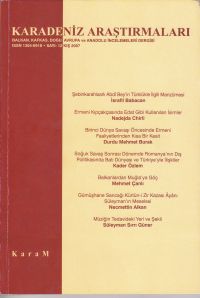
In this paper, it is examined that oppressions by Yakup's son Suleyman who Âyân was a notable of the Inferior Kurtun of Gümüşhane, which was an ottoman sanjak in late of the 18th and early of 19th centuries, was some related compleints of the people, Suleyman's capture, his execution an a survey of the accident. Oppressed to the people he was arbitrary killing people, violating women and girls, and sizing by force the properties of people. Upon these, people of Ashaghy-Kürtün and its environments compleinted him to the local administrator. So the rulers acted to catch him in difficulty Consequently, after his judging he was executed. Besides, İt is touched on some subjects such as occuring of the Ayânlık as a institution, its working and corruption.
More...
A representative from German Chancellor Angela Merkel’s party allegedly received payments as part of the money-laundering operation.
More...
2004 tragedy opened fault lines between the government and critics of its shoot-to-kill approach to terror incidents.
More...
The paper compares state of corruption and way of its control in Serbia and the EU in order to identify differences and factors that determine the extent and trend of corruption and success in its control. The analysis shows that fundamental differences don't exist in spectrum of measures implemented and problems that arise in their application between Serbia and the EU. Existing differences in perception extent of corruption by citizens are product of several factors influence, primarily the volume of direct citizens’ experiences with bribery and experiences of citizens in accomplishing their rights through legal channels. Regulatory mechanisms which should ensure efficient control of corruption have a limited range, especially those governing financing of political parties and declaration of assets of public officials. The paper points to a problem with the current voluntary approach to registration of lobbying in the EU, as well as the need to improve the national system for the control of corruption in line with the experiences of the EU countries.
More...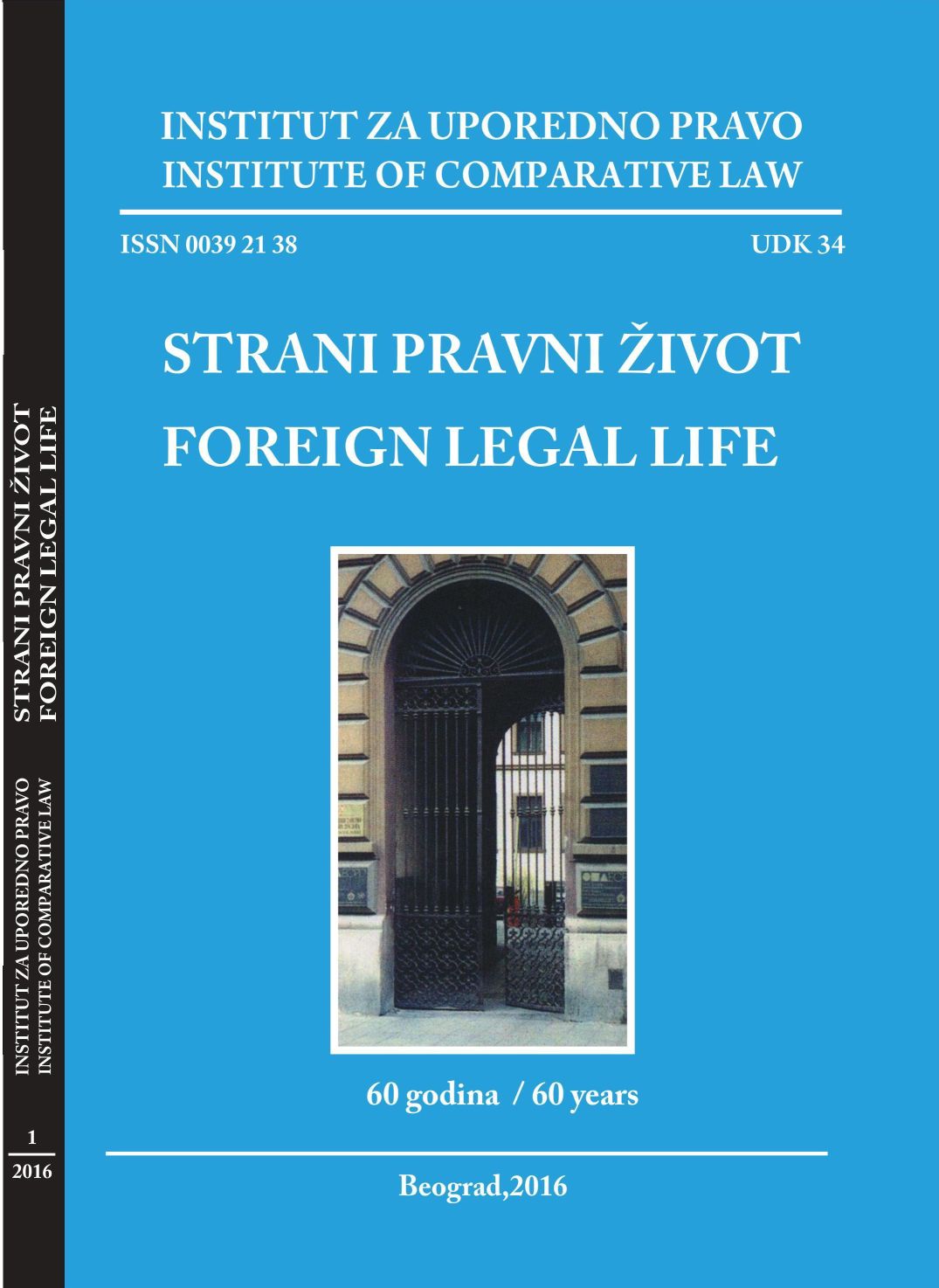
The Republic of Serbia has adopted the Law on the protection of whistleblowers in order to provide comprehensive and effective protection of whistleblowers. Diversity of different national legal provisions regarding protection of whistleblowers ilustrates conceptual confusion and theoretical discrepancy. The aim of this study is to identify universal whistleblowers` characteristics based on the analysis of standards in the European legislation, multilateral instruments and domestic law. Whether and to what extent whistleblowers differ from other persons who report irregularities and does that «specific» characteristics justifies the additional protection? The complexity of the problem is further demonstrated by the fact that the term whistleblowing is differently regulated in various legal systems. In the first part of the paper, the author deals with comparative legal practices of the EU Member States, researching the «European recipe» for the protection of the whistleblowers in Serbia. Second part comprises an overview of international legal instruments governing the protection of whistleblowers. In the third part of the paper, author undertakes analysis of whistleblowers` characteristics that could universaly define this concept regardless of the legal system.
More...
The criminal procedure laws of European countries contain various concepts of investigation, like the judicial investigation which is being progressively replaced by the prosecutorial, or the prosecutorial police investigation, while the concept of the police investigation is much less represented. The basic purpose of all the listed types of investigations is achieving the highest possible efficiency of criminal proceedings which is of an enormous importance, especially today when organized crime, terrorism, corruption, and other severe crimes are widespread. The topic of research is directed toward the police investigation which is featured in the English criminal procedure law. However, the paper will also point out the important differences between the judicial and the prosecutorial, or police, investigations. Through the methods employed in this research, which include a critical contents analysis, description, comparison, synthesis, and deduction, we will tend to come up with certain relevant facts which will enable a certain comparison in regard to the efficiency of the police and other concepts of investigation.
More...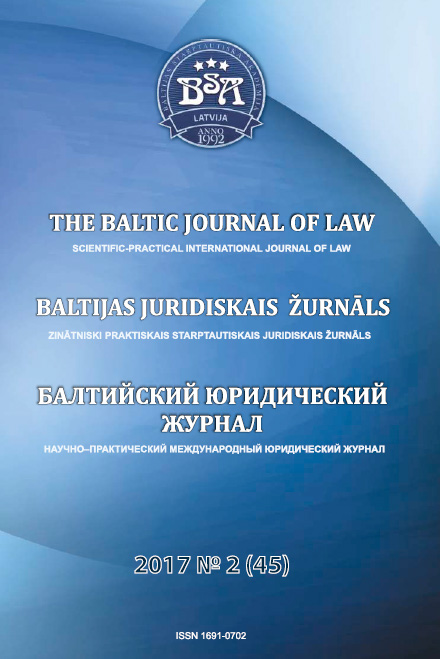
The transaction monitoring process plays a vital role in combating money-laundering and terrorism financing. The Dutch trust service providing companies are dealing with the execution of the transactions on daily basis and are required to implement proper, defined and uniform policies procedures in order to be able to timely detect the possible unusual and/or suspicious transactions and report them to the national Financial Intelligence Unit. The effective transaction monitoring policies should contain systematic controls, processing of data, analyzing and matching such data with possible risk factors, certain measures for detecting and preventing the transaction being executed. The trust companies should integrate such transaction monitoring policies in their daily business and consider such compliance policies as integral part of the business.
More...
Corruption represents a deviant behavior of state officials and public servants which is contradictious to their formal duties, but provides a personal gain or privileged status for them or for the members of their family. As a phenomenon, corruption affects almost all aspects of society, politics, public institutions, private sector, media and economy. In the first part of the article the authors discuss types of corruption that appears in public administration and analyze the examples of corrupt activities on the state and local level. In the second part attention is focused on anticorruption strategies and instruments for combating corruption, especially with reference to the Republic of Croatia. The variation of the corruption perceptions index over the years in Croatia is also analyzed, as well as survey results about the prevalence of corruption in different categories of public servants.
More...
The article aims at providing a panoramic view of the main aspects involved in the establishment of antidumping measures, demonstrating the amount of discretion left the countries in their internal investigations and to the WTO adjudicating bodies in assessing their legality. It argues that in order to provide more predictability and transparency to the WTO, the application ‘case law’ (stare decisis) as WTO law constitutes and essential tool in avoiding the use of antidumping duties as protectionist measures by the States.
More...
Conspiracy theorizing is common in many countries worldwide. It plays a particularly important role in contemporary Russian politics. The substantial part of such “theories” focuses on the sinister plans of foreign enemies, among which the United States and its allies are mentioned most frequently. A wide range of actors, varying from high-standing officials to ordinary people, resort to such conspiracy theorizing. In the 1990s, the authorities and their supporters rarely resorted to this kind of conspiracy theorizing; however, lately it has become an increasingly important element of Russian official discourse in the second half of the 2000s.
More...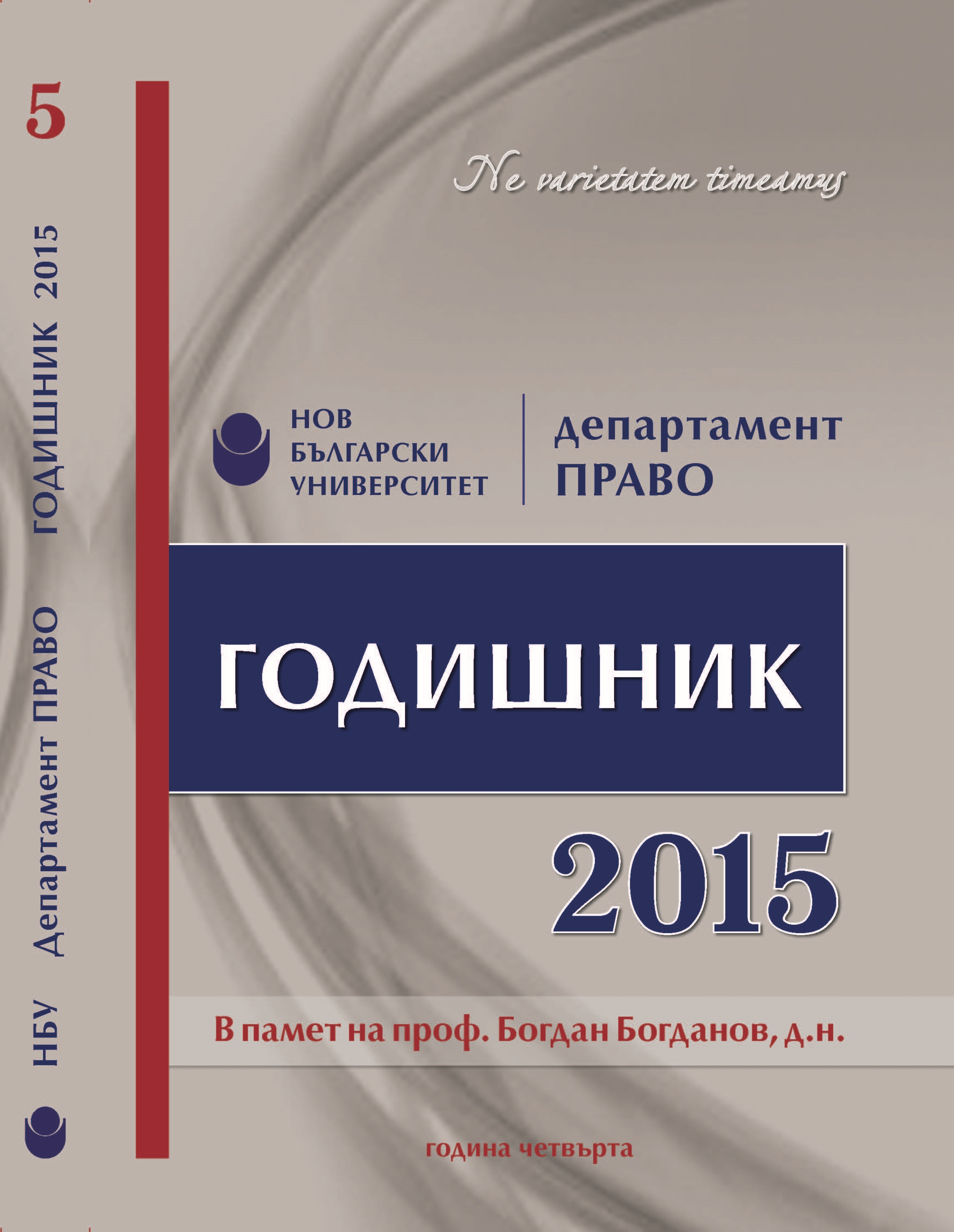
In the present article a legal characteristic of the act of bribery is made. The bribery may be considered as a particular kind of a deal revealing civil and criminal legal effects. Besides, bribery may be considered as a particular form of common criminal activity. All these particularities complicate in addition the nature of the socio-legal act known as bribery.
More...
In many sectors of the economy, public procurement is crucial for the proper functioning of the overall market competition. Public procurement is particularly threatened by the emergence of cartels in the form of bid rigging. Bid rigging occurs when businesses, instead of competing with each other, agree to offer higher prices or lower quality of goods or services subject to the procedure for procurement or distribute among themselves bids in order to prevent, restrict or distort competition for a specific bid.
More...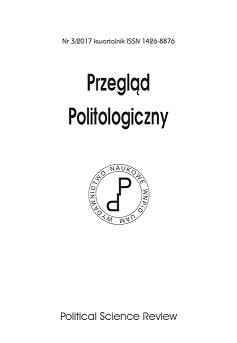
Turkey has had a fairly long tradition of regular, competitive polls and multi-party democracy begun in 1946. However, in the last decade, with the consolidation of Justice and Development Party’s (AKP, Adalet ve Kalkınma Partisi) grip on power, there has been a growing concern about the integrity of elections in this state. In subsequent elections the ruling party resorted to a plethora of means inhibiting their competitiveness. Thus, the article seeks to survey the extent of election malpractices in Turkey with the focus on manipulation of vote choice as most disturbing group of electoral malpractices and, without prejudging, to address the fundamental questions about whether elections in Turkey, notwithstanding the irregularities, still meet democratic, international standards, or whether Turkey is sliding into electoral autocracy.
More...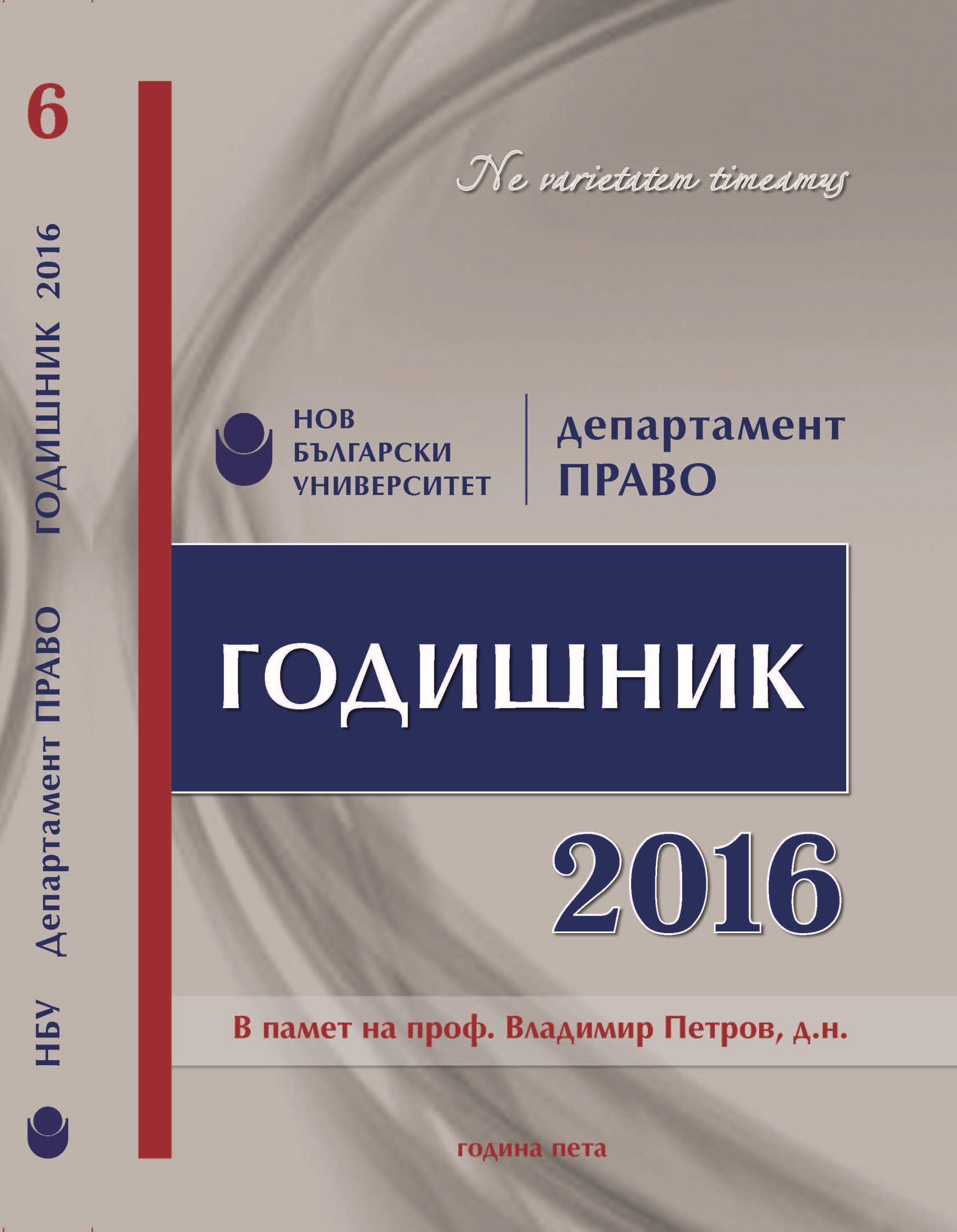
The rules on limiting the use of State aid apply to all EU members. The purpose of the State aid regime is to prevent governments from granting financial privileges to beneficiaries in a way that may distort competition. Types of State aid can be distinguished according to different criteria. For the purposes of this Article, the form in which the aid is granted is of interest. If we look at the four State aid elements in the context of taxation, it can be seen that it is surprisingly easy for the tax measure to meet the criteria governing State aid. The granting of preferential tax regimes to individual undertakings does not constitute a real public resource, whether granted directly or not by the beneficiary. But the very fact that the state renounces a certain income is deprivation of a public resource that could be distributed and used, for example in a general way. The lack of a real transfer of funds from the State to the beneficiary does not mean that the tax concessions do not meet the criteria that a public support must meet in order to qualify as State aid.
More...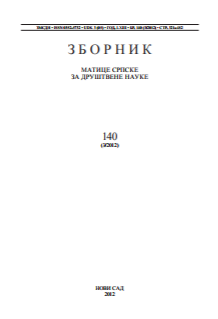
Review of: Nebojša Majstorović "Korupcija: uzrok, ekspanzija i interpretacija"; Academic Book, Novi Sad, 2012, 106p. by: Dragana Mitrić Aćimović
More...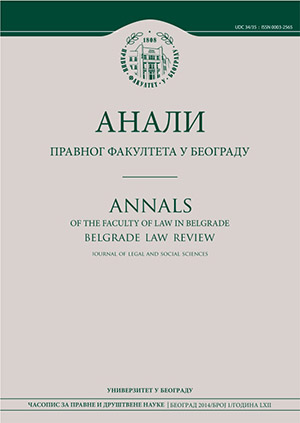
In the article an analysis of the impact of corruption, both administrative and state capture, on the tax structure is carried out. The authors established a negative correlation between the degree of corruption and the height of the effective tax burden, while isolating a simultaneous directly proportional impact of the nominal tax burden (which could reflect state intervention – the main corruption factor) on the scope of corruption. The effects of corruption on the decrease of individual taxes’ share in GDP are diversified, with impact on direct taxes as a whole being more observable. The mode of tax assessment significantly determines exposure of certain tax to the administrative corruption: it is generally larger in case of taxes assessed by the decision of the competent tax officials who are carrying out both assessment and audit, while in the case of self-assessment and withholding they just perform audits implying limited exposure to corruption. Corruptive state capture is present in the case of taxes which are important for influential corruptors. That is why in Serbia laws preventing taxation of capital gains or heavier taxation of dividends and other income paid to non-residents located in the tax havens were adopted, while by-laws which should have enabled implementation of prescribed lump sum taxation based on external signs of wealth have not been enacted. The authors concluded that the anti-corruption strategy should rely on the increasing role of self-assessment, which could reduce the room for administrative corruption. Unclear and imprecise formulations of the tax norms facilitate corruption, because they create room for arbitrariness in interpretation and implementation of the laws and by-laws. It is therefore necessary to surpress discretion, simplify tax procedure and diminish the number of tax reliefs.
More...
The paper analyses the regulations of medieval Serbian law that were directed against various forms of behavior that could be considered as corruption. The majority of these rules is to be found in church law, mostly in the canon regulations of the Nomocanon of Saint Sava and the Abbreviated Syntagma of Matthew Blastares – both of which acts were comprised of legal transplants from the Rhomean (Byzantine) Empire, containing mostly canon rules of the holy fathers of the Church and of the Ecumenical Councils – and are mostly (though not exclusively) directed against the sin of simony. Still, Serbian rulers have also brought regulations on this subject, expanding upon the canon law regulations in their charters and Dushan’s Code. Regulations against corruption of the secular officials are present no sooner than Dushan’s codification. They are mostly focused on punishing the corruption of judges and court officials (pristavs), but being unsusceptible to bribery is also pointed out by the law as one of the necessary qualities that all government officials should possess.
More...